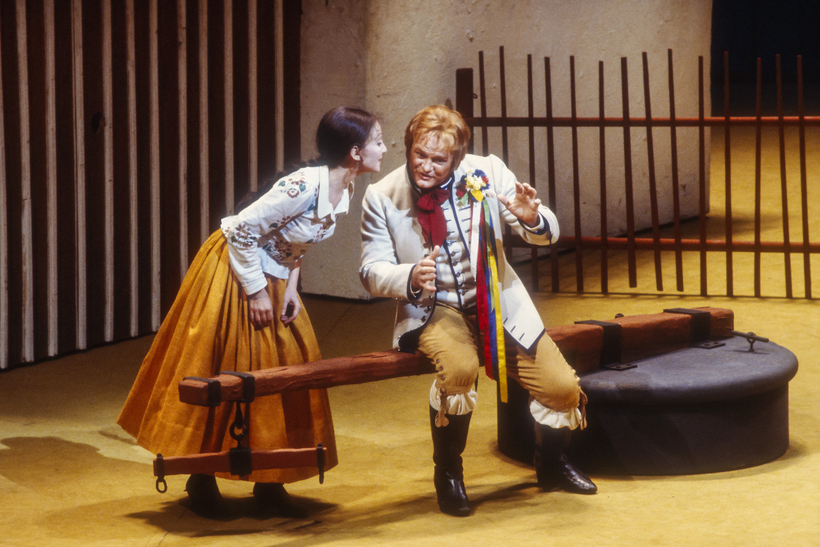“No other opera has quite the youthful exuberance to be found in this simple boy-meets-girl-boy-loses-girl-boy-gets-girl story, set within the framework of beautiful music.” That’s according to Miles Kastendieck in the Brooklyn Eagle, reporting in February 1942 on the Metropolitan Opera’s 57th performance of The Bartered Bride. Bedřich Smetana’s nostalgic comedy of Czech peasant life had been a house staple since 1909, thanks in no small part to beloved Czech divas like Emmy Destinn and Jarmila Novotna. Yet the title would not return to the Met stage for 36 years, in 1978, at the behest of James Levine, otherwise no champion of the Czech repertoire.
Truth to tell, the critical reception fell short of euphoria. Though a huge fan of the material, Alan Rich, of New York magazine, trashed the translation, the production, and the musical interpretation as joyless and misjudged. The New York Times appears to have skipped opening night altogether, weighing in late to report on a cast change in the title role.
The overdue revival was documented in a video from its star-studded premiere season, and in nostalgic retrospect, it takes on a rosy glow. As Mařenka, the village maiden promised in marriage to a rich man’s son before either child was born, the diminutive Canadian soprano Teresa Stratas lays bare a heart that is strong and true, shaping her lines in blooming tones. Nor will it be lost on you that she wears her peasant finery—that lace cap, with its supersize starched snow-white bow!—as if to the manner born.
As the apparent nobody Mařenka does want to marry, the Swedish tenor Nicolai Gedda pours on the winning romantic line that had Met audiences eating out of his hand in some 30 comic and tragic leads from the French, Italian, and Russian repertoire. The towering Finnish bass Martti Talvela, the Boris Godunov of his generation, blows in as the fast-talking marriage broker Kecal. And the Canadian heldentenor Jon Vickers takes a busman’s holiday from his tragic specialties—Otello, Tristan, and the Samsons of Handel and Saint-Saëns—to impersonate a droll naïf. As the tongue-tied mama’s boy his elders have in mind for Mařenka, he brings down the house.
For authenticity, the Met’s distinguished British director of productions John Dexter, who staged the show himself, corralled three assisting Czech masters. Josef Svoboda’s scenery supplies a spare yet poetic ground for figures dressed to the nines by Jan Skalicky, villagers in their peasant finery and flashy circus folk alike. Pavel Smok’s choreography for both cohorts explodes like fireworks. Unconscionably, the dancers—stellar, every one—go uncredited.
The Bartered Bride is available for streaming on the Met Opera On Demand Web site
Matthew Gurewitsch writes about opera and classical music for AIR MAIL. He lives in Hawaii

